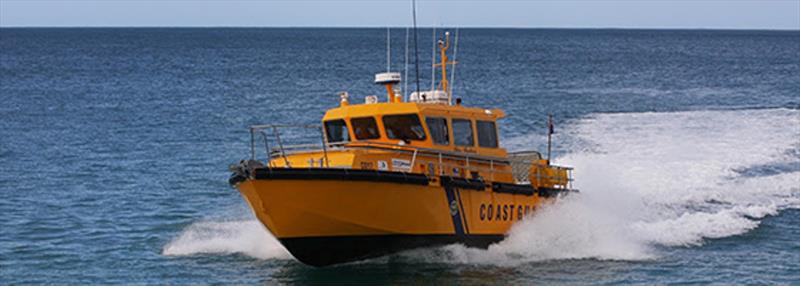
Lessons Learnt: Radio rescue after motor fails
by Maritime Safety Victoria 1 Aug 2018 10:34 UTC

Radio rescue after motor fails © Maritime Safety Victoria
This month we look at a couple of cases where skippers of vessels in distress called Marine Radio Victoria for help.
Andy* and his brother headed up to Portland to get among the tuna on the weekend prior to Anzac Day. Andy's brother had fished out there before in this boat - but it was Andy's first time out at Portland.
They had four people on board and the day was fine with calm seas. After steaming past Lawrence Rocks for about an hour, they trolled for 30 minutes with no luck.
Because the weather was so fine, they then decided to head off towards The Kink to try their luck in deeper water. After cruising at about 25 knots for an hour, they set up to troll again at around 10am. At that point their 300 hp outboard engine stalled.
Despite pulling the cowling off and checking fuses and then checking wiring and ignition switch, they were not able to restart the motor. At this point in time they were about 20nm south of Cape Bridgewater.
They decided to call for help - using VHF Channel 16. Marine Radio Victoria (MRV) monitors Ch 16 and 67 all along the Victorian coast and out to 20 nm.
MRV heard their call for assistance and notified the Victorian Water Police who tasked the Portland Coast Guard to respond.
Andy updated their position through MRV who passed on these details to the Portland Coast Guard. Updates on the Coast Guard vessel's ETA were provided to the disabled vessel by the Portland Coast Guard via VHF radio.
While Andy was waiting for the Coast Guard vessel to arrive, a number of recreational boats passed them by less than 1 km away - but they did not stop to offer them any assistance.
Possibly the other boaters did not have, or were not monitoring, VHF radio and were not aware that Andy's group was in need of assistance.
Andy was in contact with MRV from the first call for help until the Coast Guard arrived. The Coast Guard vessel brought the disabled vessel and the group safely back to dry land at Portland Harbour.
*Names have been changed.
Lessons Learnt
Maritime Safety Victoria recommends going beyond compliance when boating.
Understand the risks - posed by wind, sea state, weather (current and forecast), the time of day - and their impact on waters where you are boating.
Be prepared for the conditions. In addition to the required communications equipment for the waters you are in, consider what you'd need in order to call for help. Carrying several means of raising the alarm increases your chance of rescue, and each has its uses in different scenarios.
Even if you boat on enclosed waters or within 2nm of the coast, think about carrying a VHF radio, an emergency position indicating radio beacon (EPIRB) or personal locator beacon (PLB), a mobile phone in a waterproof pouch, and parachute flares. A grab bag will contain all these items for easy access should you need to grab them in a rush.